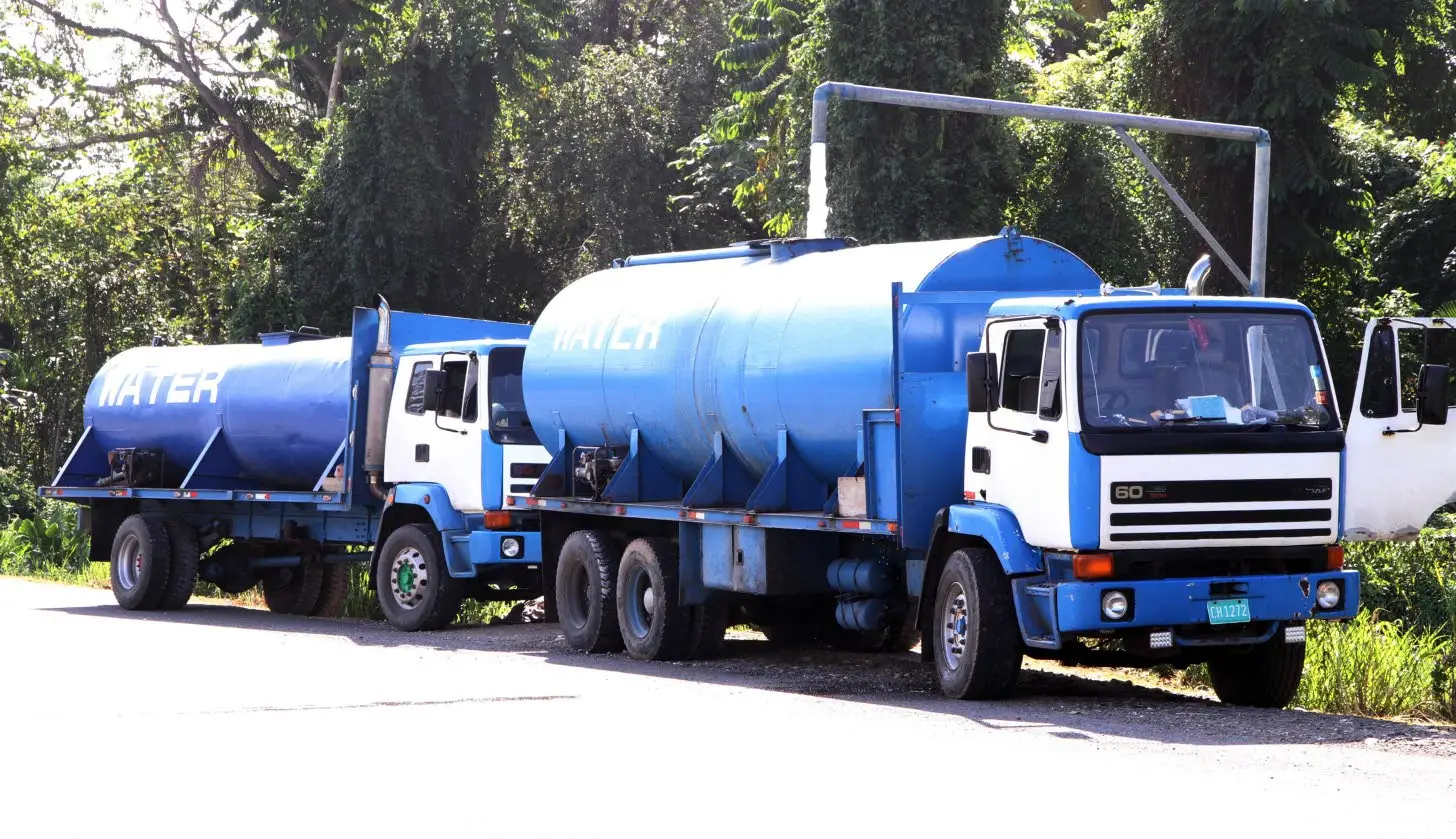
Water trucking gets safety boost
Ministry of Health introduces new measures
THE Ministry of Health says it is working to enhance the oversight of the trucking and distribution of water intended for public consumption.
They acknowledged that efforts to strengthen the trucking regulations are already underway. This includes requiring truckers to bring in their vehicles for sterilisation of the large tanks. Additionally, truck drivers are being trained in food safety.
“We are also trying to move to the place where we can place some marks, some stickers — like a decal — on the windscreen to show that this truck has been sterilised and licensed to transport drinking water. As I said, they’re rolling that out now,” said Michael Williams, director, environmental health, in the Ministry of Health during an interview with the Jamaica Observer.
He revealed to the Business Observer that a lot of the issues that consumers face are from bulk distributors of water, primarily water trucks.
“There are a few unscrupulous [water] trucking persons who operate [water] trucks for transporting water; they do not go to the designated filling station but they [instead] take the water from questionable sources,” he said.
Williams stated that the Ministry of Health cannot take action against unsafe water suppliers unless they are reported. When such issues are brought to the attention of the Minister of Health or the islandwide Public Health Department, an investigation is conducted and the police are notified to conduct surveillance and apprehend unscrupulous operators.
While many consumers have options for sourcing their water, those in rural communities may be forced to rely on trucking companies. In terms of consumer protection, the ministry emphasises that consumers should ensure they know the source of the water and who the supplier is.
“They’re supposed to be supplied with a receipt from the supplier with the name and address, the supplier’s phone number, and the date when the water was collected. All of that is supposed to be on the receipt,” Williams said.
He further advised consumers on what to look for in water delivery trucks. They should be properly labelled with “drinking water” clearly written on the side. The equipment must be clean, with dirty or greasy trucks trucks avoided. Additionally, the trucks must be well maintained and painted. Employees must hold food handler permits, indicating they have been trained by the Public Health Department to handle water safely and professionally. Before purchasing water from a truck, consumers should check with the local health department. If they visit a filling station with their own bottles, they should ensure that the station is licensed to sell bottled water. Furthermore, the refilling station should have valid food handler permits, signifying that the staff have been trained in food safety and proper water handling practices.
In the meantime, Scientific Research Council (SRC) is urging consumers to demand more transparent oversight of water refilling stations, recommending the creation of a public registry to help consumers identify approved and safe locations. Despite existing monitoring by the Ministry of Health, Ray-Ann Shaw Phillips, SRC’s team leader for analytical services, noted that current regulations could be strengthened to ensure better protection for consumers seeking safe drinking water.
“What we don’t have locally is maybe a registry of approved water filling stations, which could be of some benefit to the consumer. I think from the consumer perspective we might have to start demanding from regulators or industry that these kinds of things are produced and outlined. Where are the safe places to get these products?” said Shaw Phillips in an interview with the Business Observer.
Though there is no legal requirement for such a registry, Phillips emphasised that water refilling stations are still subject to regulatory oversight to ensure water safety standards. However, Williams explained that consumers can know which refilling stations are safe to get water from, despite not having a registry, as every distributor for bottled water — including refilling stations — must have a licence, and should have that licence displayed at the outlet. However, when questioned about whether every water refill station is licensed and has a licence displayed, he noted that some may not.
“The refilling stations are out in the public thoroughfare so you wouldn’t see a licence that is affixed to something, especially the rural areas,” Williams responded.
While many consumers have the option to choose their source of drinking water, some individuals still rely on alternative suppliers — such as filling stations or mobile water trucks — particularly in communities without regular water supply. As such, SRC recommends that those obtaining water from these trucks whose water quality may be uncertain, should boil the water before consumption to ensure safety.
“You want to pre-treat that water before you consume it to help further guarantee its safety before you consume it, especially if you have elderly and young kids. If you’re getting water from the trucks I strongly recommend that you boil it as a part of your own internal quality system in your households,” advised Dr Charah Watson, head of the SRC.
























